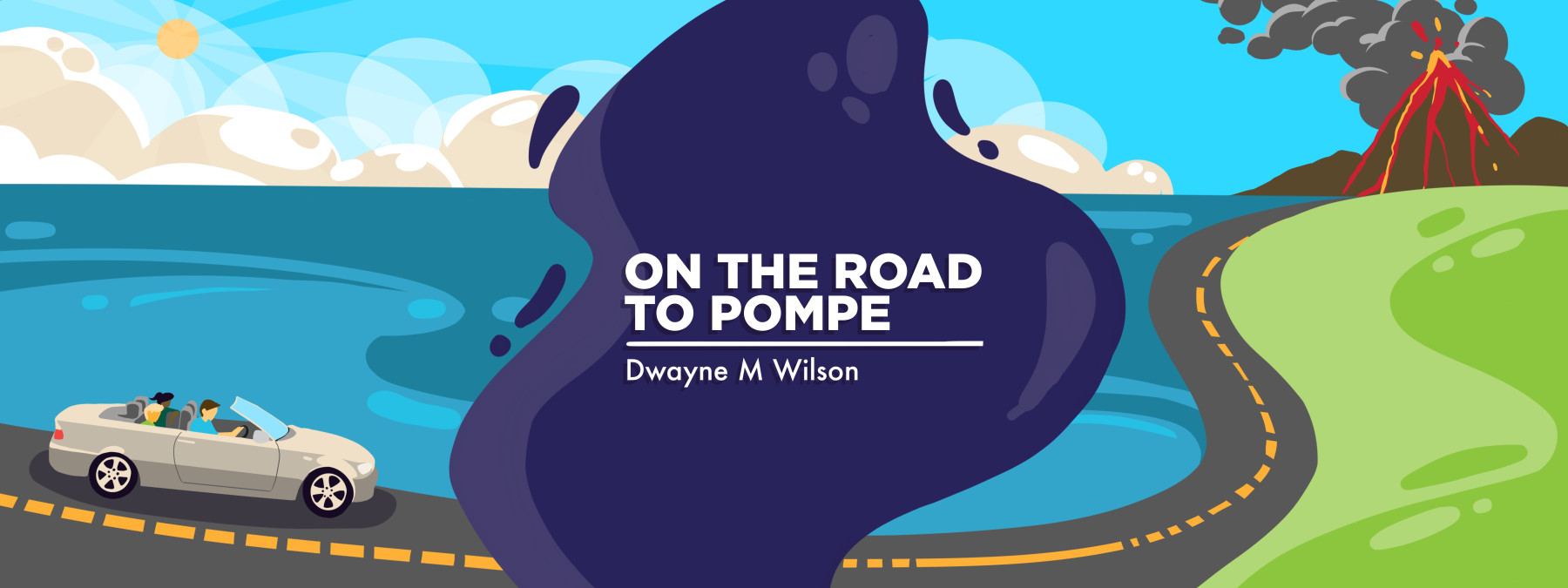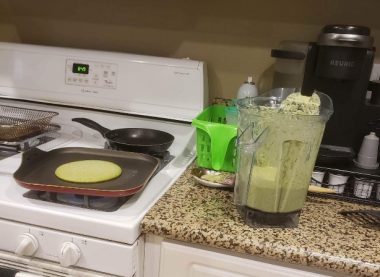With Pompe Disease, I’m Slowly Getting Used to a New Diet
Columnist Dwayne Wilson could do without all of the weird green stuff in his food

For my diagnosis day celebration last week, I indulged and had a doughnut. We also celebrated Thanksgiving early with some apple and pumpkin pie. I really do enjoy eating desserts. But when I received my diagnosis of late-onset Pompe disease four years ago, I learned I needed to change my eating habits. It would be a long road of yuck ahead.
Along with getting enzyme replacement therapy, which slows muscle weakness progression, there are other recommendations to help fight the battle. Physical and occupational therapy are the second part of a triangle to ensure the muscles I still have left are strengthened and kept moving, which is a top priority for me.
Diet and nutrition are the third point of the triangle. Pompe disease is also known as glycogen storage disease type 2. The body slowly stops producing the GAA enzyme that helps to process and break down glycogen stored in the muscle cells. Excess glucose turns into glycogen, so less glucose in the body means less glycogen to build up in the muscle cells.
Increasing the intake of protein nourishes the muscle cells. But decreasing foods like carbs or simple sugars that turn into glucose is easier said than done.
This is the single hardest thing for me to put into action. I grew up devouring pasta, bread, potatoes, and all the starchy foods and pie I could eat. Trying to find a balance is a battle I fight every day with the foods I eat. Remember, I am the Doughnut King!
I wrote in a previous column that being diagnosed with late-onset Pompe disease is not an end, but a new beginning. It requires doing things differently and thinking outside the box. And having green pancakes for breakfast definitely falls outside the box.
I am not a fan of vegetables. But my loving wife will slip some “healthier choices” into her blender without me knowing it. It’s better if I don’t know what’s in a meal before I eat it. Just give me some lasagna or pizza, and I am a happy camper.

That feeling when I wake up to see green batter in the blender for some pancakes. (Photo by Dwayne Wilson)
What is that?
Last Sunday morning, I woke up to a blender full of green batter on the kitchen counter. My first response was that I was going back to bed. She was making green pancakes.
When breakfast was served, the pancake didn’t look half bad. It had some chunky peanut butter on top with sugar-free syrup. After taking a few bites, it was pretty good. My wife told me that it was made of kale, apple, protein powder, and oatmeal. I ate kale and survived!
Along with the kale, she added some cinnamon toast protein powder to give it some flavor. We like to add protein powder to some carb-based foods, including pancakes, waffles, muffins, cookies, and oatmeal. I even add protein powder to ice-blended coffees as my own style of Frappuccino.
Preparing food has become like an experiment. I like to say that I choose my carbs wisely. There must be some compromise if I want to have a doughnut one day.
What fuels my body “On the Road to Pompe” is a learning process. I may hit a few bumps on the road, but my journey keeps moving forward. I’m always learning and being open-minded, even when I don’t like it.
Note: Pompe Disease News is strictly a news and information website about the disease. It does not provide medical advice, diagnosis, or treatment. This content is not intended to be a substitute for professional medical advice, diagnosis, or treatment. Always seek the advice of your physician or other qualified health provider with any questions you may have regarding a medical condition. Never disregard professional medical advice or delay in seeking it because of something you have read on this website. The opinions expressed in this column are not those of Pompe Disease News or its parent company, Bionews, and are intended to spark discussion about issues pertaining to Pompe disease.








Leave a comment
Fill in the required fields to post. Your email address will not be published.